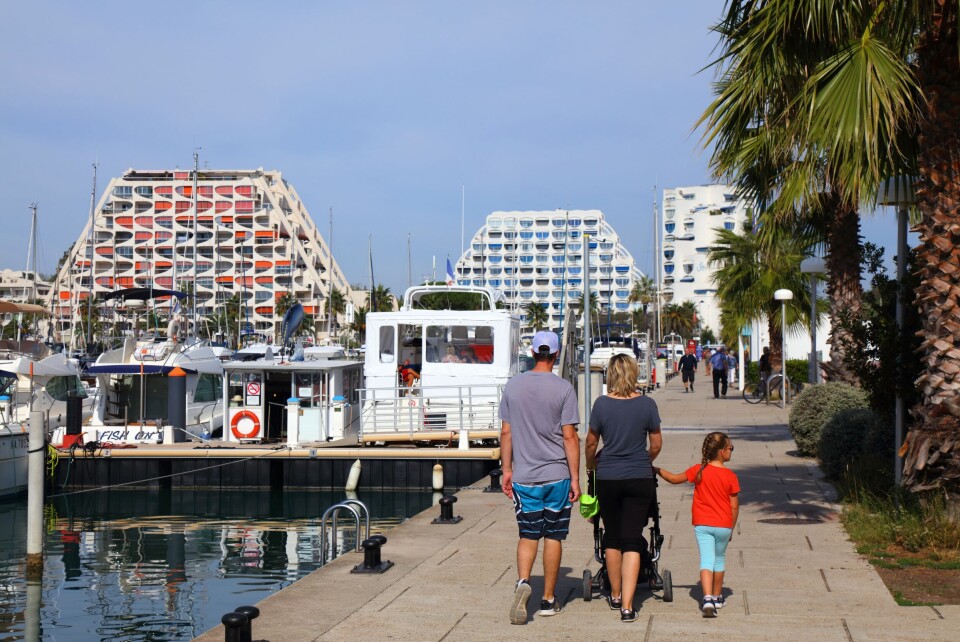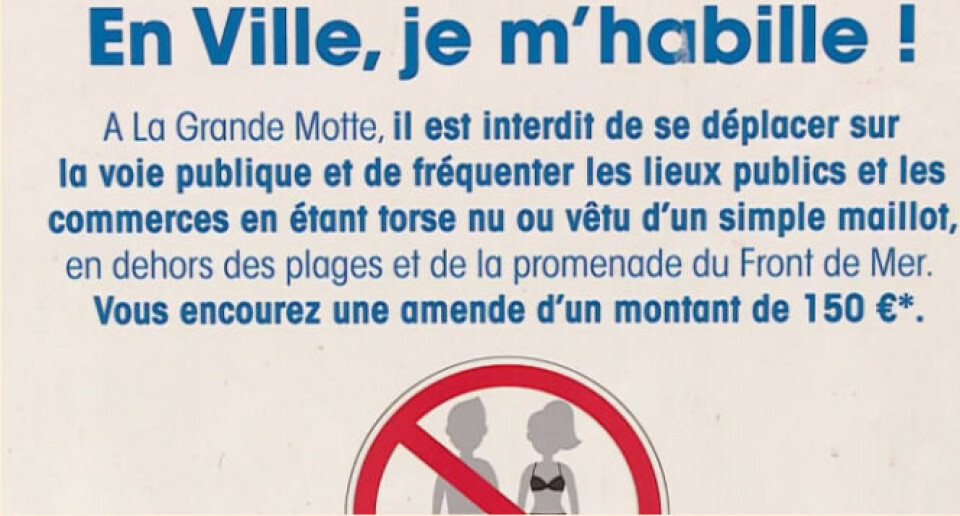-
France public transport fares should double, claims report to Transport Ministry
French passenger fares currently cover less than a fifth of the total service cost
-
Processionary caterpillars return across France, warn local authorities
Insect has been seen two months earlier than usual in many areas
-
EES: Why am I fingerprinted every time at Nice airport?
Phase-in period is continuing and technical improvements are still awaited
Walking bare-chested and in swimwear in this French town risks a fine
‘It’s a question of respect’, says the mayor, who has increased the fine from €38 to €150

A town in southern France has banned people from walking around the town centre and in shops bare-chested or wearing swimming gear under threat of a €150 fine.
The mayor has called it “a question of respect”.
La Grande-Motte near Montpellier in Hérault - a popular beachfront tourist town - actually banned the practice in 2008.
But it has now launched an awareness campaign called ‘En ville, je m’habille [In town, I am dressed]’, to remind people of the rule and enforce it properly - particularly during times of high temperatures. Stickers are being placed in shop windows accompanied by a poster campaign.
The decree applies to the entire town centre but exempts beaches and promenades directly next to the shore. It bans bare chests, and people wearing only swimming costumes, bikinis, or swim shorts.

Picture credit: FranceInfo / Screenshot
Grande-Motte mayor Stéphan Rossignol said that the campaign was largely aimed at tourists and has been popular. He said: “We have had almost 3,000 shares on Facebook, which shows that it is a subject of concern.
“Other than the information signs, we have also given flyers and stickers to shopkeepers. They don’t like having clientele who show up shirtless in their shops, especially when buying food.
“It’s a question of respect, putting a T-shirt on is not a big thing [to ask]. If people really want to cool off, the sea is right next door.”
The fine for contravening the decree was previously €38 but this has risen to €150 in a bid to be as “dissuasive” as possible, said Mr Rossignol.
However, he said that local police would aim to ‘educate’ people on the rule rather than just hand out fines.
























